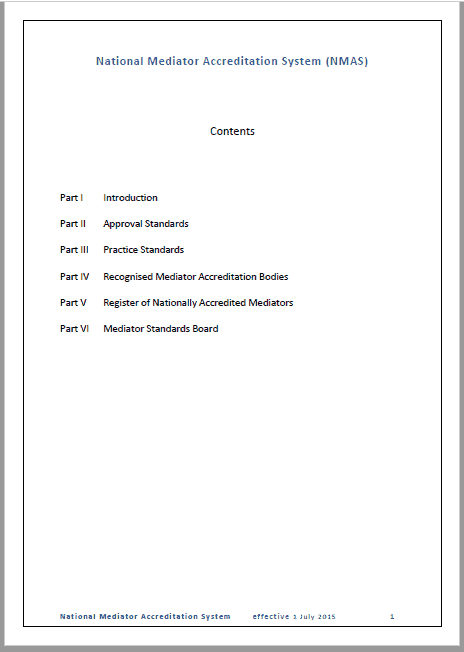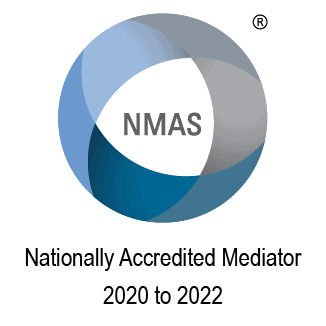Mediator Ethics are generally based on the standards established by the Mediators Standards Board (MSB) in the National Mediator Accreditation System (NMAS) which has ethical standards for mediators.

The NMAS can be downloaded from the Mediators Standards Board Website.
Click here to download.
If the mediator is a NMAS Accredited Mediator they should explain to their clients their professional obligations regarding confidentiality, any potential conflict of interest and so on.

Accreditation is for two years and there are requirements for renewal.
Is your mediator NMAS Accredited? Check the register to find out. All current NMAS mediators should be on this register.
What if my mediator is not NMAS Accredited.
My first response is not to allow them to facilitate your dispute.
If for some reason you do want them to facilitate for you at least ask if they have any training. If they are not NMAS accredited there is no guarantee that they have any training at all.
If they are not trained then ask yourself why you are allowing them to try to facilitate your mediation rather than someone who is qualified?
The requirement to become NMAS Accredited are not that difficult.
To become NMAS accredited a person must complete the Mediator Training and Assessment process or equivalent.
With Mediation Institute the training and assessment is all online with live online mediation role plays for skills development and assessment.
They then need to become NMAS accredited through a Recognised Mediator Accreditation Body (RMAB) like mediation institute who checks that they are insured, of good character and have been assessed as competent. Their RMAB is also their complaint handling body and the mediator must inform clients of who they can escalate their complaint to if they are not satisfied with the service and it is not able to be resolved through direct discussion with the mediator.
What if they are an internal mediator in my workplace?
If that is the case the process is more likely to be facilitated discussion than mediation. If your “mediator” is another staff member and not someone who is independent of the dispute there are two possible issues.
Conflict of Interest
The facilitator may have a relationship with one or both that goes beyond acquaintance which could consciously or unconsciously bias the process. This should be disclosed, discussed and agreement regarding proceeding reached, even in facilitated discussion.
Confidentiality
Because it isn’t really mediation the protections that you have in mediation regarding confidentiality and inadmissibility (whether what is said can be used as evidence) my not be present. You should ask how anything discussed will be used, who it will be shared with and what it can be used for at the start of the process. Seek legal advice or talk with your union representative if you are unsure if it is appropriate to proceed.
That said Facilitated Discussion is a valid approach to avoid workplace or community organisation issues escalating by bringing people together to discuss their issues in a process facilitated by a third party.
Mediation Institute offers Facilitated Discussion training for people who do not want the full cost of gaining and maintaining NMAS accreditation. Your facilitator should have a Certificate of Competence if they have participated in our training or something similar.

